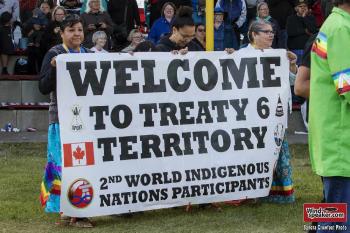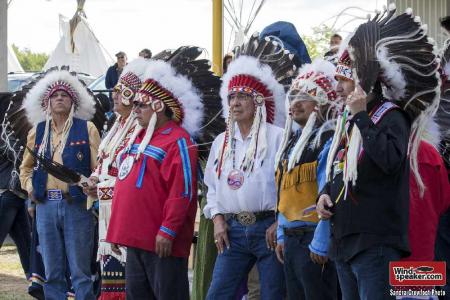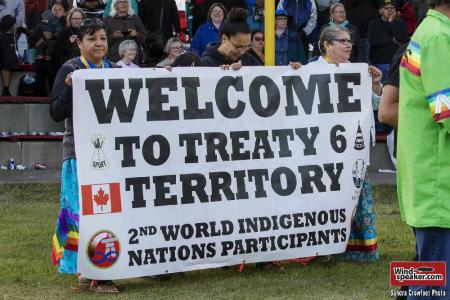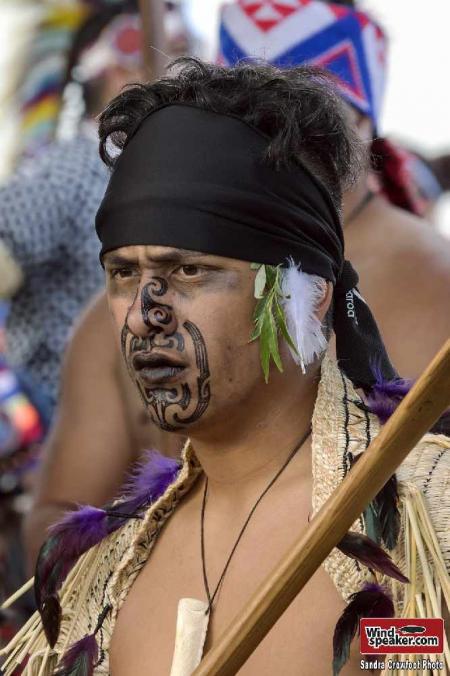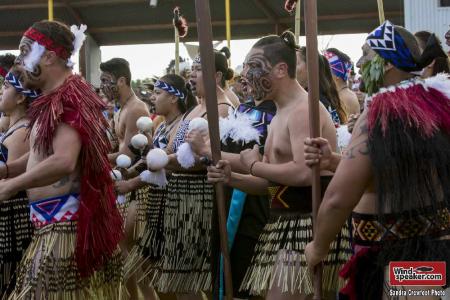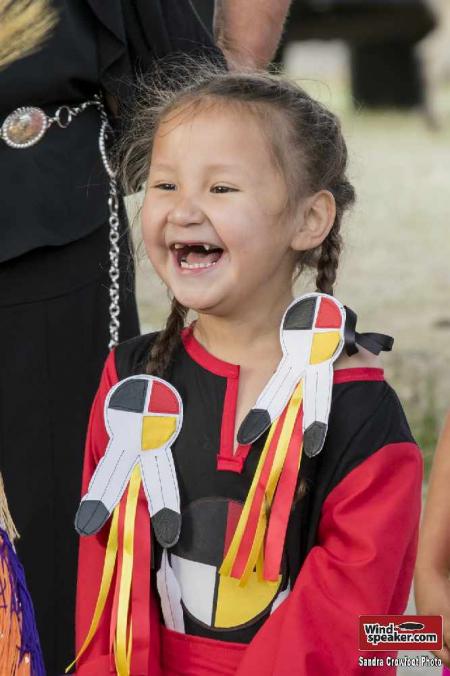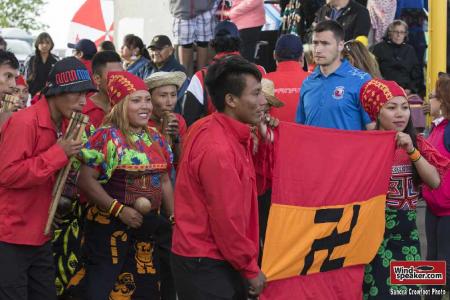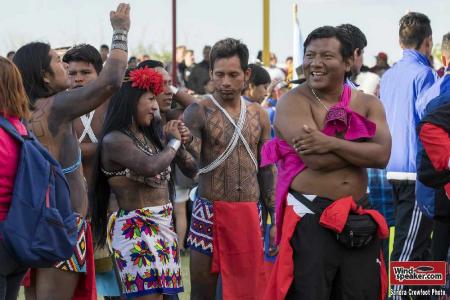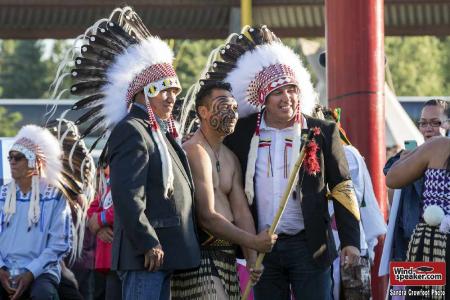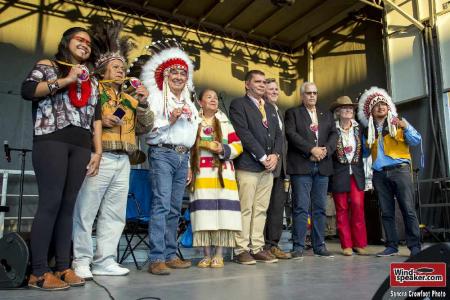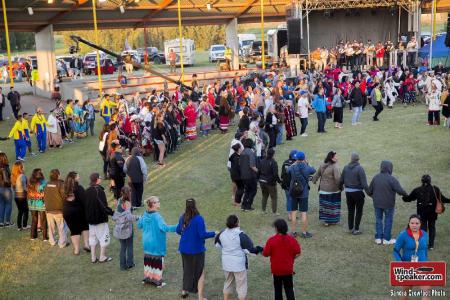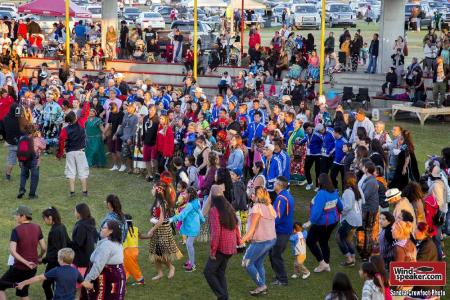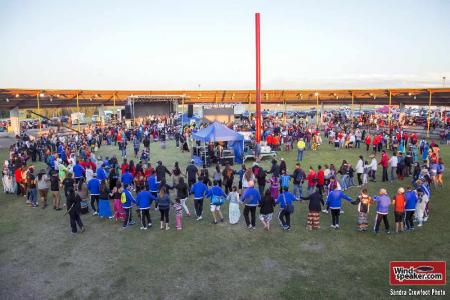Image Caption
Summary
{ALBUM_998688}
By Sam Laskaris
Windspeaker Contributor
EDMONTON
Trina Goodin is urging as many Alberta residents as possible to get out and witness this year’s World Indigenous Nations Games (WIN Games).
That’s because Goodin, who is the WIN Games’ sports director, believes attending the multi-sport competition could very well be an opportunity they will never get to experience again in their lifetime.
More than 500 Indigenous athletes from 29 countries are participating in this year’s Games, which are being held in Edmonton and on the Enoch Cree Nation.
This marks just the second time the WIN Games have been held. The inaugural Games were in Brazil in 2015.
This year’s Games kicked off on Monday with a traditional bow and arrow competition at Tomahawk Park on the Enoch Cree Nation.
The opening ceremonies were then staged Monday night at Bear Park, located on the Ermineskin Cree Nation.
The Games, which are open to athletes 18 and over, will continue until this Sunday.
“It’s an amazing opportunity,” Goodin said. “We may never have the Games here again. There are so many countries that want to host these Games. It will be a long time before it comes back to Canada or even North America. So it could very well be a once-in-a-lifetime chance.”
The bow and arrow competition was originally scheduled for Sunday. But organizers decided to delay the event by one day in order to allow a Mongolian contingent, which was experiencing some travel difficulties, to arrive in Alberta to take part in the event.
Besides the bow and arrow competition, other medal sports that will be contested at the Games include canoeing, swimming, soccer and lacrosse.
But there will also be some medal sports that do not receive much publicity. They include a tug of strength and spear throwing.
“These are some of the very traditional sports that you don’t usually see,” Goodin said.
There is also a 100-metre sand race, in which competitors run barefoot.
“Many athletes do this race on the beaches in their home countries,” she said.
There will also be a number of demonstration sports at this year’s event. They include an Indigenous horse relay race, Inuit Games, strongman games and Denesuline hand games.
The WIN Games are about much more than just sporting competitions.
For example, the World Indigenous Nations Youth Conference will be held in conjunction with these Games.
This two-day conference, for youth ages 13 to 18, will be held Wednesday and Thursday at the Nipisihkopahk Education Authority High School in Maskwacis.
A total of 10-Indigenous themed conferences/workshops/discussions will also be held throughout the week.
Participating athletes in the Games can attend these events for free. The public is also welcome to attend these events, but must pay a $250 registration fee.
Goodin believes the sporting aspect is just a part of the WIN Games.
“It’s also about meeting new Indigenous people from other nations and learning more about each other and celebrating each other,” she said.
Goodin anticipates the soccer competition to be one of the most popular ones at the Games.
“It’s a very popular sport, especially in Central and South America,” she said.
Meanwhile, several of the athletes from abroad took part in an event on Sunday, a day before the WIN Games kicked off.
Ermineskin Cree Nation Chief Randy Ermineskin invited athletes to participate in his First Nation’s powwow. Those who performed some traditional songs and dances during the grand entry were Maori, Mexican and Panamanian individuals.
The Maori Haka was also performed for those in attendance.
Among those who were spotlighted at the opening ceremonies were three former Olympians. They were Waneek Horn-Miller, a former water polo player, ex-ski jumper Steve Collins and Sharon Firth, who was a cross-country skiing star.
Federal and provincial representatives were also among those at the opening ceremonies. They included Carolyn Bennett, the minister of Indigenous and Northern Affairs Canada, and Richard Feehan, Alberta’s minister of Indigenous Relations.
Athletes from Brazil, which hosted the inaugural WIN Games, were the first delegation to march into the opening ceremonies parade of countries.
A wide variety of topics will be included in the conferences, which are held in conjunction with the Games.
One is titled Upholding and Implementing Our Inherent and Treaty Rights. Another one is the International Indigenous Peoples – Strengthening Our Voices for Rights and Justices.
There is also one called International Indigenous Reconciliation and De-Colonizing. And another is titled International Indigenous Foods and Food Sovereignty.
Besides North America, athletes representing various regions of the world are also taking part. Those regions are South America, Asia/Pacific, Central America, Africa, Russia/Arctic and Oceania.
-30-
Gallery
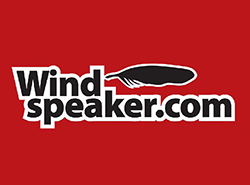
Windspeaker.com Staff
With files from Dustin McGladrey from CFWE-FM’s Conversational Cree
Reuben Quinn has been teaching Cree culture and language classes for about five years.
He said the English language is very limiting, as far as translating any Indigenous language… any Turtle Island language.
“It’s really limiting. It has a completely different worldview, and the worldview is so vastly different from the English-language worldview.”
Reuben tells us how Nehiyaw came to be known as Cree?
Join Dustin McGladrey each Saturday at 8 a.m. (Mountain Time) for a one-hour program dedicated to nehiyawewin (Cree language). CFWE-FM wants to share the Cree language with everyone by creating the opportunity for non-Cree speaking people to begin to learn.

